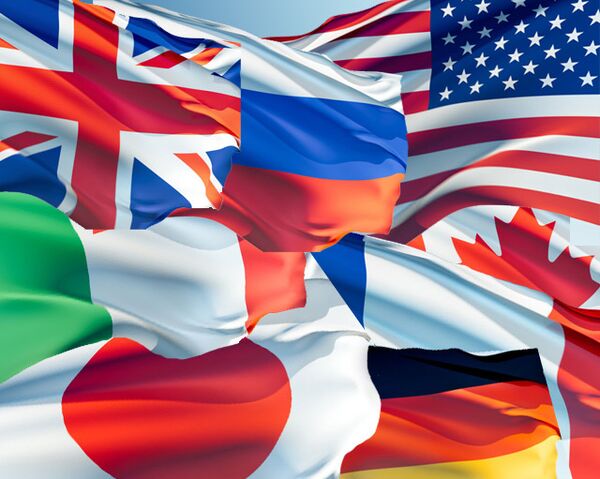MOSCOW. (Oleg Mityayev, RIA Novosti economic analyst) - G8 energy ministers met in Rome on May 24 and 25. The biggest issue tackled at the high forum was the need to invest in new energy projects, which would promote energy security and ensure sustainable development in the post-crisis period. However, the conference failed to produce a clear-cut recipe for how to achieve it.
The main theme of the energy ministers' conference was Beyond the crisis: towards a new world order for energy. The decisions will be presented at the next G8 summit, also in Italy, on July 8 through 10.
An International Energy Agency (IEA) forecast, also presented at the meeting in Rome, is evidence that the global economy is going through a very hard time, the energy sector included. The forecast says that global electricity consumption in 2009 will drop 3.5% for the first time since WWII.
Oil consumption is even more sensitive to economic cycles, and has been fluctuating along with global economic ups and downs several times since the war. According to the IEA, 2009 will see a 3% drop in oil consumption compared with 2008.
It is logical to expect a rise in investment in the sector only after the downward trend is reversed. This cannot be envisaged too soon, given the sharp fall in industrial demand for energy resources and poorly accessible loans.
Yet, investment in oil and gas projects should be supported, because otherwise, there might be a shortage of energy resources at the point when growth begins again. The IEA forecasts a possible shortage of oil as soon as in 2012. Even now, global oil production has dropped by 2 million bpd because of the economic downturn. If the trend persists, the global industry will fall short of another 4.2 million bpd over the next 18 months.
That is why the Rome conference participants in their final declaration urged the energy sector not to postpone investment until after the crisis. G8 energy ministers signed the declaration, and so did representatives of 23 more countries, including emerging economies such as four OPEC members, Saudi Arabia among them.
Incidentally, oil producing nations and companies have assumed a rather ambiguous position. On the one hand they agree that oil price volatility is damaging for the global economy. On the other hand, they say new investment in the oil industry will only be possible when prices rise to about $75 per barrel from the current $60.
Russian Energy Minister Sergei Shmatko showed unfailing optimism in Rome, solidly backed up by his own forecast that Russia would keep oil production at last year's level in 2009. He described the current situation in the Russian oil sector as stable.
In his words, the stability is due to easing Russian oil companies' tax pressure as part of the government's bailout program. Therefore, Russian oil producers have not cut investment. He admitted however, that their investments would only be enough to maintain production at last year's level, while the sector was in stagnation in 2008.
Eventually, the meeting provided no specific recipe of how to channel investment into the energy sector during the recession. The IEA predicts a 21% drop in global investments in the exploration and production of oil and gas this year.
John Lipsky, first deputy managing director of the IMF and a participant in the meeting, said oil investments were expected to decline in 2009 and are likely to remain subdued in 2010. The IMF official urged policy makers to find ways to reduce oil price volatility and its impact on the global economy. Otherwise, the short spell of relatively stable oil prices will be followed by a new surge in the mid-term.
The opinions expressed in this article are the author's and do not necessarily represent those of RIA Novosti.



